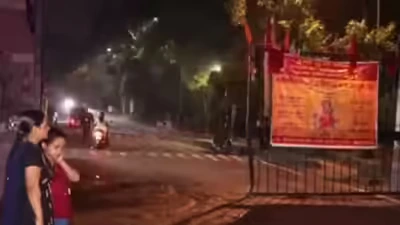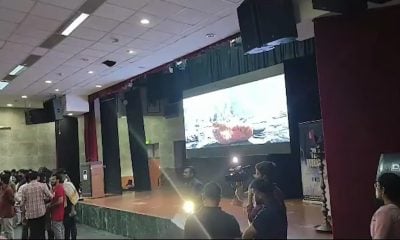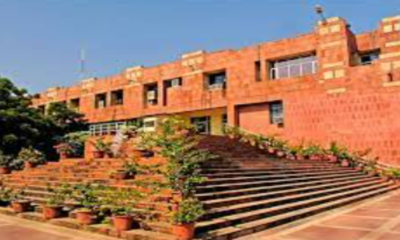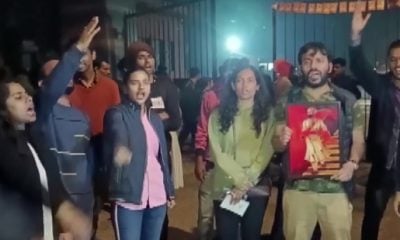The demands of the protesting JNU students included the immediate withdrawal of the minimum attendance circular issued by the administration on February 9.
Demanding an immediate rollback of the new rule of minimum attendance issued by the JNU administrations, students of the Jawaharlal Nehru University (JNU) on Thursday intensified their protest at the university campus.
To protest against the new rule to make 75 percent attendance compulsory in an academic year to avail scholarships and fellowships, large number of students gathered outside the JNU administrative block to raise their demands with the JNU vice chancellor Jagadesh Kumar. Reportedly, students formed a human chain near the main entrance of the administration block and stopped Rectors Chintamani Mahapatra and Rana Pratap Singh and other staff members from leaving the building.
The demands of the protesting JNU students included the immediate withdrawal of the circular issued by the administration on February 9, which stated that the students might be denied of fellowship and debarred from examinations if they didn’t fulfill the minimum attendance requirement.
The students reportedly ramped up their protest after a meeting of the JNU academic council – which was scheduled to be held on February 23 – was postponed indefinitely.
However, claiming that the movement of any official on the campus was not restricted, JNU Students Union said in a statement, “Students have been peacefully waiting to meet JNU VC and raise questions about compulsory attendance.”
Further alleging that the administration is trying to evade dialogues, JNSU said, “All university officials freely moved into and out of administration building. No one was stopped and students have not blocked any entrances and are peacefully waiting to meet the VC. Ironically, JNU VC has taken to Twitter to say we are violating High Court judgment but has he forgotten that the same HC has asked him to meet the students and union and resolve the issues?”
Also claiming that the “compulsory attendance policy was never part of Academic Council agenda”, a JNU student said, “He (JNU VC) has threatened to take away hostels, cancel studentship, stop fellowships, which, for him to do, is illegal. This is clearly against JNU statutes. By threatening and not meeting students, the VC has forced students to come to the admin block to meet him and question him. However, he has been running away from meeting the students like he did from holding a declared academic council meeting.”
Reacting at the students protest at the university campus, Vice-Chancellor Jagdeesh Kumar, over a series of posts in Twitter said, “As you can see from my past tweets, JNU administration including the VC, regularly meets the students for their inputs. Students can meet with appointment or can meet every first Monday of the month in the afternoon without any appointment. Even after JNU administration has promised to meet the JNUSU officer bearers, see how they have mistreated and shouted at the two rectors. All this against the attendance in University? Shouldn’t such behaviour be condemned?”
“JNUSU led students have confined top officials of JNU in admin building since 11 AM. When they tried to go out of admin building, they were shouted at and forced to go back into the building. Unbecoming of students. Shouldn’t such behaviour be condemned? Taking the university to ransom by JNUSU led students and confining the top officials in admin building since morning is highly condemnable. Let us raise our voice against such unwelcome behaviour. You can see the pictures to realize how they are bent upon creating unrest in JNU,” he added.
Extending support to the students, the JNU Teachers Association in a statement released on Monday, said, “JNUTA has serious reservations regarding the new system of mandatory attendance. Procedural lapses that have taken place in implementation of the new rules were in contrast to the democratic decision making processes of the university. After the general body meeting, several Centres and Schools, in addition to JNUTA, have expressed their grievances. However, instead of taking cognizance of these reservations, the JNU Administration has repeatedly sought to impose its decisions through coercion. Therefore, JNUTA urges the JNU administration to immediately start a dialogue with students and teachers.”


 India News20 hours ago
India News20 hours ago
 India News19 hours ago
India News19 hours ago
 India News10 hours ago
India News10 hours ago
 Cricket news9 hours ago
Cricket news9 hours ago
 India News8 hours ago
India News8 hours ago













